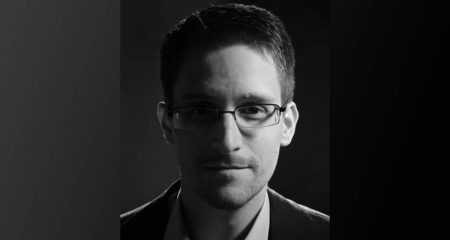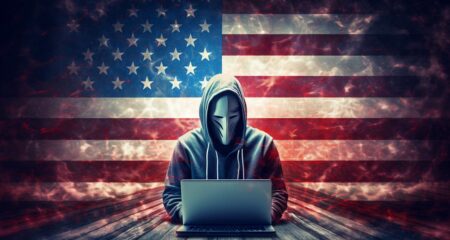
Ever since the former US National Security Agency contractor Edward Snowden fled to Hong Kong and handed hard drives filled with highly classified documents to the journalists Glenn Greenwald and Laura Poitras, there has been rampant speculation over whether he was really a foreign agent.
The official story is well known. Snowden over time grew frustrated with the US government’s excessive domestic surveillance. In an act of civic bravery, he leaked the evidence to reporters from The Guardian and The Washington Post. As he was trying to travel to South America in May 2013, the US state department pulled his passport. Snowden has been stuck in Russia ever since.
Lots of people never bought that. The writer Edward Jay Epstein, for example, has argued that the scope of documents Snowden stole, most of which dealt with US military and intelligence capabilities and not the dragnet collection of telephone data of ordinary citizens, suggest he was part of an intelligence operation. Mike Rogers, the former chairman of the house intelligence committee, has accused Snowden of working closely with Moscow.
So one might think that finally, after more than three years, a new unclassified report on Snowden from Rogers’ former committee could shed some light on this matter. Unfortunately, the report released by the committee Thursday does no such thing.
On the vital question of whether Snowden worked with a foreign power when he was taking the documents he would eventually leak, the house investigation is a tease. There is a section titled “foreign influence”. Yet all but two of its sentences, including supporting footnotes, are redacted.
The two sentences we are allowed to read don’t tell us much. One quotes a fragment of an NPR interview with Frants Klintsevich, a member of the Russian Duma’s defence and security committee. He says Snowden shared intelligence. Snowden himself tweeted that, in its written transcript of the interview, NPR excluded a caveat from Klintsevich that he was speculating about this.
The other sentence seems more tantalising. “Since Snowden’s arrival in Moscow, he has had, and continues to have, contact with Russian intelligence services,” it says. This would stand to reason. After all, Snowden would have invaluable information on the inner working of US signal intelligence collection. Of course Russian intelligence officers would want to talk to him.
For now, though, this claim should be treated as speculation. The report does not provide any evidence to support it. Snowden denies that he is “in cahoots with Russian intel”. The report also confirms that Snowden did not arrive in Moscow with the hard drives of documents that he provided to journalists.
Even if it’s true that Snowden has been in touch with Russian spies, it does nothing to dispel or support the central question about whether he was acting as a witting, or unwitting, foreign agent back in 2013. When I asked around about this Thursday, US officials who were familiar with the unredacted report told me it remains an open question. Perhaps it does. But the public record tells a different story.
Chris Inglis, who was the deputy director of the NSA when Snowden first leaked the documents, earlier this year said: “I don’t think he was in the employ of the Chinese or the Russians, I don’t see any evidence to support that.” He also said that he believed Snowden had intended to go to Latin America after he gave the hard drives to Greenwald and Poitras, and that his plan appeared to be hatched on the fly. The Inglis version of events is supported by other senior officials. The current head of the NSA, Michael Rogers, told the Defense News in 2014 that it was possible Snowden was a foreign agent, but he was “probably not”.
Given all of this confusion, the US intelligence community should declassify the new report’s section on foreign influence. If this is really an open question, then the American people deserve to see all the evidence. If he was a spy, it would mean that our counter-intelligence professionals were outwitted again by Russia, just as they were with the moles Robert Hanssen and Aldrich Ames. If Snowden really is who he claims to be, this too should be a matter of public record.
Instead, the US intelligence community has added to the public’s confusion by refusing to declassify the information. As a result, the redacted section of the house intelligence committee report on foreign influence is a species of innuendo. The public can’t see the evidence, but trust us, there is something.
All of this is ironic. As director of national intelligence James Clapper told me in 2014, it was a mistake to keep the NSA’s programme to collect the telephone metadata of US citizens a secret for so long. That was the substance of Snowden’s initial disclosure to The Washington Post and The Guardian.
Because the George W Bush and Barack Obama administrations shielded this programme from the public, Snowden was able to pose as a whistleblower, even though he also leaked reams of information that had nothing to do with the privacy rights of American citizens, including details about how the NSA had hacked computers in China.
In this sense, protecting an unnecessary secret enabled the mass disclosure of necessary secrets. The house intelligence committee’s report on Snowden proves the US government has yet to learn this lesson. — (c) 2016 Bloomberg LP




